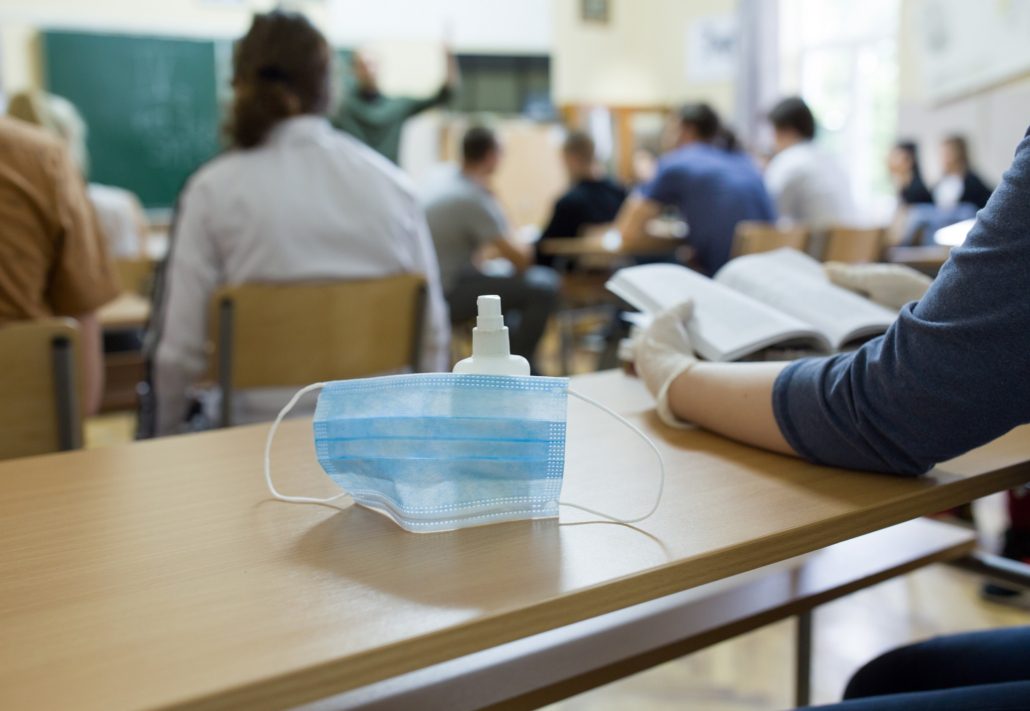The Legacy of Covid-19 in Education
Evidence from Germany of the damage from school closures to children’s skills development
The cognitive and socio-emotional development of many children has been seriously impeded by school closures during the pandemic. What’s more, children from disadvantaged backgrounds and those with low initial achievement have been much more severely affected. These are among the conclusions of new research by Katharina Werner and Ludger Woessmann, which surveyed parents in Germany during the school closures in the spring of 2020 and early 2021.
Their study finds that the time that children spent each day on school-related activities was cut roughly in half in the first lockdown; in the second lockdown, it was still three hours less than during a typical school day. Even in the second year of the pandemic, more than a third of parents report that their child had online lessons at most once a week. In contrast, the average time that children spent watching TV, playing computer games and being on social and online media rose from 3.8 hours a day before the closures to 5.1 hours a day.
Whether these short-term impediments to children’s skills development will translate into long-term skill losses will partly depend on their age cohort. Missing out on developing basic reading, writing and counting skills in the first years of primary school or on social interactions during teenage years may well have long-run repercussions.
More
The pandemic hit children and families particularly hard. With schools closed for several months and education systems facing unprecedented challenges around the world, children had to learn from home without the support of trained educators. In addition, the isolation enforced by social distancing rules precluded children from meeting friends or attending their usual activities.
Countries gave very different priorities to education and to the situation of children. As it turns out, the duration of school closures was not related to the intensity of Covid-19 transmission across countries (OECD, 2021). This study discusses how the pandemic affected the education and skills development of school children.
The researchers draw on two parental surveys that they fielded to cover the two phases of nation-wide school closures in Germany. After having implemented a first survey of over 1,000 parents during the first phase of school closures in the spring of 2020 (Grewenig et al, 2021), they fielded a second survey of over 2,000 parents during the school closures at the beginning of 2021.
A longitudinal component of the surveys makes it possible to track the situation of over 500 children over time at the individual level, providing new evidence on how schools and families adapted to the pandemic over time.
During the first school closures in the spring of 2020, the time that children spent on school-related activities was cut roughly in half. During the second nation-wide school closures in early 2021, the time that children spent on school-related activities increased to one hour more than during the initial school closures, but still three hours less than during a typical school day before the pandemic.
In contrast, the average time that children spent on activities that most parents consider rather detrimental – watching TV, playing computer games and being on social and online media – increased markedly during the school closures. While it was 3.8 hours per day before the closures, it increased to 5.1 hours each day during the first period of closures and persisted throughout the course of the pandemic.
Schools often struggled to offer adequate online instruction. Only 7% of parents report that their child’s school offered daily lessons for the entire class – for example, by video calls – during the first period of closures. In the second period of closures, 25% report daily online lessons. At the same time, even in the second year of the pandemic, 35% of parents report that their child had online lessons at most once a week.
Evidence suggests that the cognitive and socio-emotional development of many children has been seriously impeded by the school closures and other lockdown measures. In addition, children from families of low socio-economic status and children with low initial achievement are likely to be hit much more severely on average, exacerbating future educational and economic inequality.
If remediation fails, these losses of skills can be expected to have long-term repercussions, suggesting that there will be a strong persistent legacy of Covid-19 for children’s skills development.
Whether short-term impediments to children’s skills development will translate into long-term skill losses will partly depend on whether there are sensitive periods in child development (for example, Cunha and Heckman 2007). If so, postponement of skill acquisition during school closures – for example, missing out on developing basic reading, writing and counting skills in the first years of primary schools or on social interactions during teenage years – may well have long-run repercussions.
‘The Legacy of Covid-19 in Education’
Authors:
Katharina Werner (ifo Center for the Economics of Education)
Ludger Woessmann (University of Munich and ifo Center for the Economics of Education)
References:
Cunha, Flavio, and James J Heckman (2007) ‘The Technology of Skill Formation’, American Economic Review 97(2): 31-47.
Grewenig, Elisabeth, Philipp Lergetporer, Katharina Werner, Ludger Woessmann and Larissa Zierow (2021) ‘COVID-19 and Educational Inequality: How School Closures Affect Low- and High-Achieving Students’, European Economic Review: 103920.
OECD (2021) The State of School Education: One Year into the COVID Pandemic.






